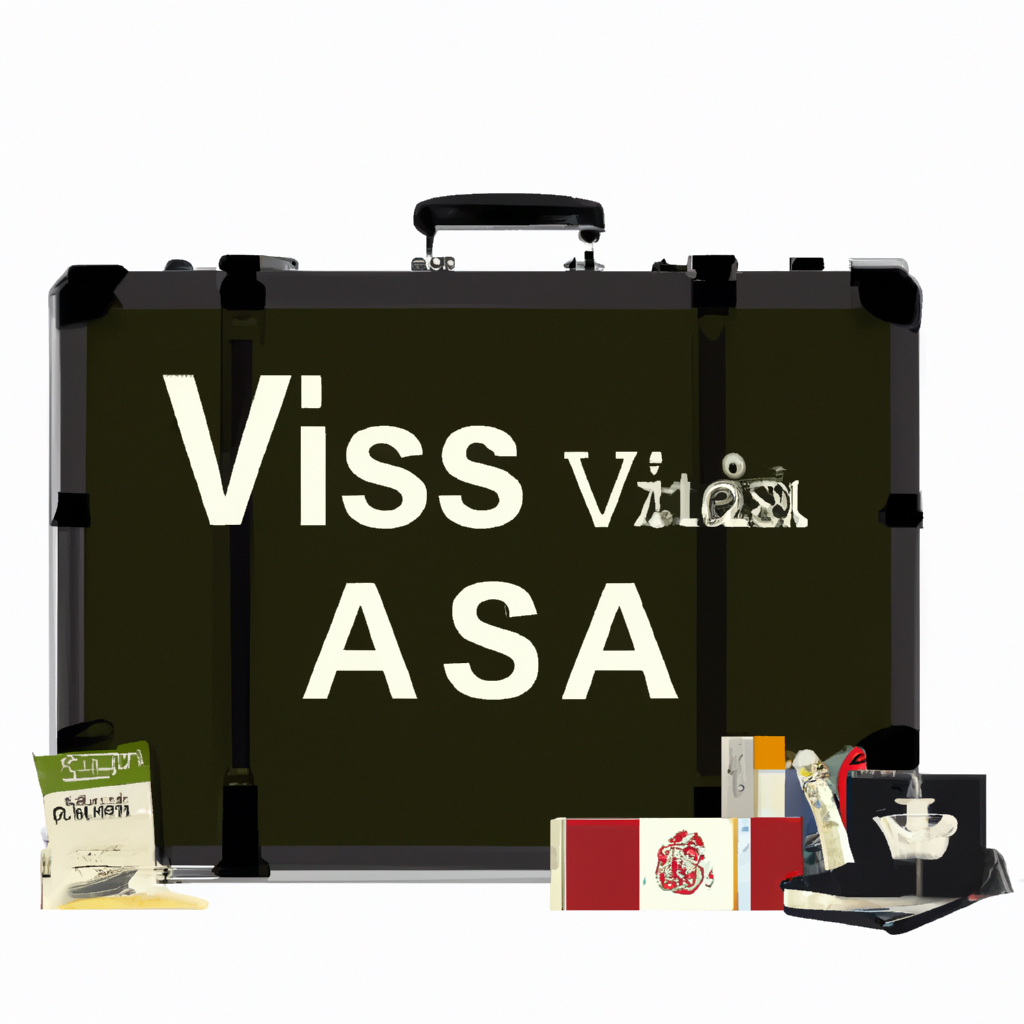Are you a student in the UK dreaming of starting a new chapter in Canada? Look no further, as this step-by-step guide has got you covered. Moving to a different country can be an exhilarating yet daunting experience, especially when it comes to navigating the immigration process and settling into your new academic pursuits. In this article, we will provide you with a comprehensive overview of the essential steps and considerations to keep in mind as you embark on your journey from the UK to Canada. So, buckle up and get ready to explore the exciting possibilities that await you in the land of maple syrup and breathtaking landscapes.

Researching Universities in Canada
Choosing a Canadian university
When researching universities in Canada, it’s important to consider various factors in order to make an informed decision. Start by exploring the different universities and their programs. Look for universities that offer the course or major you are interested in. Consider the reputation and rankings of the universities, as well as the faculty and resources available. Additionally, think about the size of the university and the campus culture, and whether it aligns with your preferences.
Understanding admission requirements
Each Canadian university has its own admission requirements, so it’s essential to familiarize yourself with them. Check the academic qualifications required, such as specific subjects or grades. Some universities may also consider extracurricular activities or personal statements. Pay attention to any language proficiency tests, such as IELTS or TOEFL, that may be necessary for international students.
Considering location and lifestyle
Consider the location of the universities you are interested in. Canada is a vast and diverse country, so think about whether you prefer a bustling city, a smaller town, or a remote location. Research the climate and surroundings of each location to ensure it suits your preferences. Moreover, consider the lifestyle and cultural opportunities available in each city or town, as they can greatly enhance your student experience.
Exploring tuition fees and scholarships
Tuition fees in Canadian universities can vary depending on the program and the institution. Research the fees for international students at the universities you are considering. Additionally, look into scholarships and financial aid opportunities. Many universities offer scholarships specifically for international students, so be sure to explore these options as they can greatly alleviate the financial burden of studying in Canada.
Applying to Canadian Universities
Understanding application deadlines
Be aware of the application deadlines for Canadian universities, as they can vary. Some universities have early application deadlines, while others accept applications throughout the year. Mark these deadlines in your calendar and ensure you give yourself enough time to complete the application process.
Preparing required documents
Before applying to Canadian universities, gather all the necessary documents. This typically includes academic transcripts, language test scores, a resume, and a copy of your passport. Make sure that these documents are up to date and in the required format, as specified by each university. Seek any translations or verifications if needed.
Writing a strong personal statement
When applying to Canadian universities, a personal statement is an important component of your application. Use this opportunity to highlight your academic achievements, extracurricular activities, and personal experiences that make you a strong candidate. Tailor your personal statement to each university and demonstrate your enthusiasm for the chosen program.
Obtaining letters of recommendation
Many Canadian universities require letters of recommendation as part of the application process. These letters should be from teachers or professors who can speak to your academic abilities and personal qualities. Request these letters well in advance to give your referees enough time to write them.
Submitting the application
Once you have completed your application and gathered all the necessary documents, it’s time to submit your application. Follow the instructions provided by each university carefully. Some universities may require online applications, while others may accept paper applications. Double-check that all required documents have been included and pay any necessary application fees.
Obtaining a Study Permit
Understanding study permit requirements
A study permit is a document issued by the Canadian government that allows international students to study in Canada. Research the study permit requirements to ensure you meet the criteria. Typically, you will need a letter of acceptance from a Canadian university, proof of financial support, and a valid passport.
Gathering necessary documents
To apply for a study permit, you will need to gather various documents. These may include your letter of acceptance from a Canadian university, proof of financial support, a valid passport, and any other documents specified by the Canadian government. Make sure all documents are accurate and up to date.
Applying for a study permit
The application process for a study permit can be done online or by mail, depending on your country of residence. Follow the instructions provided by Immigration, Refugees, and Citizenship Canada (IRCC) carefully. Pay attention to any application fees and ensure that your application is submitted within a reasonable timeframe before your intended start date.
Completing medical examinations
In some cases, you may be required to undergo a medical examination as part of the study permit application process. This is to ensure that you are in good health and meet the health standards set by the Canadian government. Follow the instructions provided by IRCC to complete the medical examination, if required.
Receiving study permit approval
After submitting your study permit application, it may take several weeks or even months to receive a decision. Once your study permit is approved, you will receive a letter of introduction. This letter should be presented to a border officer when you arrive in Canada to obtain your study permit.
Arranging Accommodations
Researching housing options in Canada
When arranging accommodations in Canada, it’s important to start researching your options early. Universities often offer on-campus housing options, such as dormitories or student residences, which can be convenient for first-year students. Additionally, explore off-campus housing options, such as apartments or shared houses.
Contacting university housing services
If you are interested in on-campus housing, reach out to the university’s housing services for more information. Check the application deadlines for on-campus housing and find out what amenities and facilities are available. Housing services can also provide guidance on finding off-campus accommodations if necessary.
Exploring off-campus housing
If you prefer to live off-campus, start exploring rental listings in the area where your university is located. Online platforms and local rental agencies can help you find suitable options. Consider factors such as proximity to campus, transportation options, and the cost of utilities when choosing off-campus housing.
Connecting with potential roommates
Living with roommates can help reduce costs and provide a support system. If you are interested in sharing accommodations, consider reaching out to other students through university forums or social media groups. Take the time to get to know potential roommates and ensure you have compatible lifestyles and preferences.
Understanding rental agreements
Before signing any rental agreements, make sure you fully understand the terms and conditions. Rental agreements typically outline the rent amount, lease duration, and any additional responsibilities or restrictions. Read the agreement thoroughly, and if you have any questions, seek clarification from the landlord or a legal professional.

Preparing Finances
Estimating costs of living in Canada
Before you move to Canada, it’s important to estimate the costs of living. This includes expenses such as tuition fees, accommodation, food, transportation, textbooks, and personal expenses. Research the average costs in the city where your university is located to get an accurate estimate. Prepare a budget to ensure you have enough funds to cover your expenses.
Opening a bank account
Once you arrive in Canada, it’s advisable to open a bank account to manage your finances. Research different banks and their services, and choose one that suits your needs. Most banks require a valid study permit, proof of address, and identification documents to open an account. It’s also a good idea to inquire about any specific banking requirements for international students.
Transferring funds from the UK
If you are moving from the UK to Canada, you will need to transfer your funds to a Canadian bank account. Research different international money transfer services and compare their rates and fees. Ensure that you have enough funds available in your Canadian bank account before your departure to cover initial expenses.
Exploring financial support options
Studying in Canada can be costly, but there are various financial support options available. Research scholarships, grants, and bursaries offered by the universities you are applying to. Additionally, check if there are any government-funded programs or loans specifically available for international students. Explore all possible options to alleviate your financial burden.
Understanding insurance requirements
As an international student, it’s important to have health insurance coverage in Canada. Depending on the province or territory where you will be studying, you may be eligible for provincial health coverage, such as the Ontario Health Insurance Plan (OHIP) or the British Columbia Medical Services Plan (MSP). Alternatively, you may need to purchase private health insurance. Research the insurance requirements and ensure you have appropriate coverage.
Organizing Travel and Transportation
Booking flights to Canada
Once you have received your study permit and finalized your travel plans, it’s time to book your flights to Canada. Research different airlines and compare prices to find the best deals. Consider factors such as luggage allowances, layovers, and departure/arrival times. Be sure to book your flights in advance to secure your preferred dates.
Packing essentials for the move
When packing for your move to Canada, consider the climate and the duration of your stay. Pack appropriate clothing for all seasons, as Canada experiences varying temperatures throughout the year. Don’t forget to bring important documents, such as your passport, study permit, and any academic transcripts. Additionally, pack any personal items or sentimental belongings that will help you feel more at home.
Arranging transportation from the airport
Upon arrival in Canada, you will need to arrange transportation from the airport to your accommodations. Research transportation options at the airport, such as taxis, ride-sharing services, or public transportation. Some universities may offer airport pickup services for international students, so be sure to inquire about this option in advance.
Navigating public transportation in Canada
Canadian cities have well-developed public transportation systems, which can be a convenient and cost-effective way to get around. Research the local transportation options, such as buses, trains, or metro systems. Consider purchasing a transit pass or card, which offers discounted fares for students. Familiarize yourself with the routes and schedules to make your daily commute easier.
Exploring transportation options in the local area
In addition to public transportation, explore other transportation options available in the local area. Some cities have bike-sharing programs or car-sharing services, which can provide flexible transportation solutions. Research whether your university offers any transportation services for students, such as shuttle buses or discounted parking permits.

Adjusting to Canadian Culture
Understanding Canadian customs and etiquette
Adjusting to a new country’s customs and etiquette is an important part of the cultural adaptation process. Familiarize yourself with Canadian customs, such as greetings, mealtime etiquette, and social norms. Canadians are known for their politeness and respect for personal space, so be mindful of these cultural values.
Familiarizing with local laws and regulations
In Canada, it’s crucial to familiarize yourself with local laws and regulations to ensure you abide by them. Research the laws related to alcohol consumption, smoking, driving, and student responsibilities. Understanding the legal framework will help you navigate daily life and avoid any unnecessary complications.
Adapting to the educational system
The Canadian educational system may differ from what you are accustomed to in the UK. Take the time to understand the grading system, class structure, and expectations of professors. Attend orientation programs and workshops provided by your university to learn about academic resources, study techniques, and time management skills specific to the Canadian educational system.
Connecting with international student associations
International student associations are valuable resources for networking, support, and cultural exchange. Seek out international student associations at your university and get involved in their activities and events. These associations often organize social gatherings, mentorship programs, and workshops tailored to the needs of international students.
Exploring Canadian social and recreational activities
Canada offers a wide range of social and recreational activities that can enhance your overall student experience. From outdoor adventures like hiking and skiing to cultural events and festivals, there is something for everyone. Explore your university’s clubs and organizations to find activities aligned with your interests. Don’t be afraid to step out of your comfort zone and embrace new experiences.
Settling in Canada
Completing necessary immigration procedures
Upon your arrival in Canada, there may be additional immigration procedures that you need to complete. This can include activating your study permit, obtaining a Social Insurance Number (SIN), and registering for a Canadian Health Card, if eligible. Follow the instructions provided by the Canadian government and ensure that you comply with all requirements.
Registering with local authorities
Depending on the province or territory where your university is located, you may be required to register with local authorities. This typically involves obtaining a driver’s license or updating your address with the local municipality. Research the specific requirements for your area and complete the necessary registrations in a timely manner.
Obtaining necessary health coverage
As an international student, it’s important to have health coverage in Canada. If you are eligible for provincial health coverage, apply for it as soon as possible. If you instead need to rely on private health insurance, ensure that it is valid and provides appropriate coverage for your needs. Look into the services offered by your university’s health center and familiarize yourself with the nearest medical facilities.
Obtaining a Canadian phone number
Having a Canadian phone number will make it easier for you to communicate with your university, classmates, and new friends. Research different mobile service providers and compare their plans and rates. Visit a local service provider’s store or explore online options to purchase a SIM card or set up a mobile plan that suits your needs.
Exploring educational and career resources
Canada offers a wealth of educational and career resources that can support your personal and professional growth. Visit your university’s career center to access resources such as resume workshops, job fairs, and networking events. Take advantage of the libraries, research facilities, and academic support services to complement your studies and enhance your educational experience.

Starting University in Canada
Attending orientation programs
Orientation programs are designed to help new students acclimate to university life and make connections with fellow students. Attend orientation programs offered by your university to learn about campus services, meet faculty members, and make friends. This is a valuable opportunity to familiarize yourself with the university’s facilities and get a sense of the campus community.
Registering for courses
Registering for courses is a crucial step in starting your university journey in Canada. Follow the instructions provided by your university’s registration department to ensure you enroll in the appropriate courses. Consult your academic advisor or faculty members for guidance in choosing courses that align with your academic goals and requirements.
Getting involved in campus activities
Getting involved in campus activities and clubs can greatly enrich your university experience. Explore the wide range of clubs and organizations available at your university and join those that align with your interests. This is an excellent way to develop new skills, meet like-minded individuals, and create a strong support network.
Navigating university services and facilities
Familiarize yourself with the various services and facilities offered by your university. This includes the library, computer labs, career center, writing center, and counseling services. Visit these facilities and understand how to utilize them effectively. Knowing the resources available to you will greatly enhance your academic and personal success.
Building a support network
Building a support network is essential for a successful university experience. Cultivate relationships with your professors, mentors, and fellow students. Attend social events, join study groups, and take advantage of networking opportunities. Having a support network will provide you with guidance, advice, and friendship throughout your time in Canada.
Exploring Post-Study Options
Understanding post-graduate work permits
After completing your studies in Canada, you may be eligible for a post-graduate work permit (PGWP). This permit allows you to work in Canada for a specified period of time, which can be beneficial for gaining work experience and potentially remaining in Canada permanently. Research the requirements and application process for the PGWP to ensure you understand your options.
Exploring opportunities for further education
Studying in Canada can open up additional opportunities for further education. If you are interested in pursuing higher degrees, research graduate programs at Canadian universities. Explore scholarships, assistantships, and funding opportunities available for international students. The strong academic reputation of Canadian universities can provide a solid foundation for your future educational pursuits.
Considering permanent residency options
If you wish to stay in Canada permanently after completing your studies, it’s important to consider the permanent residency options available. Research the various immigration pathways, such as the Express Entry system or provincial nominee programs. Consult with an immigration lawyer or an authorized immigration consultant to understand the requirements and procedures involved.
Seeking employment in Canada
Canada offers numerous employment opportunities for international graduates. Utilize your university’s career center and alumni networks to search for job opportunities. Tailor your resume and cover letter to the Canadian job market and attend career fairs and networking events to make connections with potential employers. Don’t forget to utilize online job platforms and job search engines to widen your search.
Making use of alumni networks
Maintaining connections with your university’s alumni network can be advantageous for your personal and professional growth. Join the alumni association or network and participate in alumni events and mentorship programs. Engage with former students who have successfully transitioned into their careers to gain insights and guidance. Alumni networks can provide valuable resources, connections, and opportunities even after graduation.
Moving from the UK to Canada as a student is an exciting and life-changing adventure. By thoroughly researching universities, understanding admission requirements, obtaining a study permit, organizing accommodations, preparing finances, arranging travel, adjusting to the Canadian culture, settling in, starting university, and exploring post-study options, you can navigate the entire process with confidence. Embrace the opportunities that Canada offers and make the most of your educational journey. Good luck!

